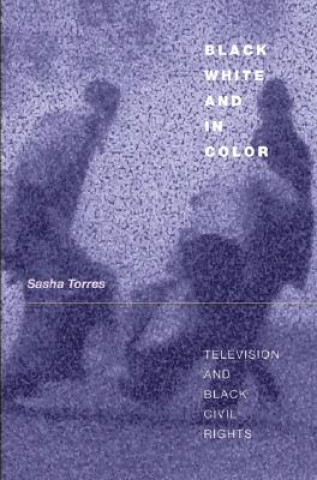
Doručení
Nákupní rádce





Nehodí se? Vůbec nevadí! U nás můžete do 30 dní vrátit
 Dárkový poukaz
V libovolné hodnotě
Dárkový poukaz
V libovolné hodnotě
S dárkovým poukazem nešlápnete vedle. Obdarovaný si za dárkový poukaz může vybrat cokoliv z naší nabídky.
Black, White, and in Color
 Angličtina
Angličtina
 123 b
123 b
30 dní na vrácení zboží
Mohlo by vás také zajímat


This book examines the representation of blackness on television at the height of the southern civil rights movement and again in the aftermath of the Reagan-Bush years. In the process, it looks carefully at how television's ideological projects with respect to race have supported or conflicted with the industry's incentive to maximize profits or consolidate power. Sasha Torres examines the complex relations between the television industry and the civil rights movement as a knot of overlapping interests. She argues that television coverage of the civil rights movement during 1955-1965 encouraged viewers to identify with black protestors and against white police, including such infamous villains as Birmingham's Bull Connor and Selma's Jim Clark. Torres then argues that television of the 1990s encouraged viewers to identify with police against putatively criminal blacks, even in its dramatizations of police brutality. Torres's pioneering analysis makes distinctive contributions to its fields. It challenges television scholars to consider the historical centrality of race to the constitution of the medium's genres, visual conventions, and industrial structures. And it displaces the analytical focus on stereotypes that has hamstrung assessments of television's depiction of African Americans, concentrating instead on the ways in which African Americans and their political collectives have actively shaped that depiction to advance civil rights causes. This book also challenges African American studies to pay closer and better attention to television's ongoing role in the organization and disorganization of U.S. racial politics.
Informace o knize
 Angličtina
Angličtina
Kategorie




 Jak nakupovat
Jak nakupovat






















